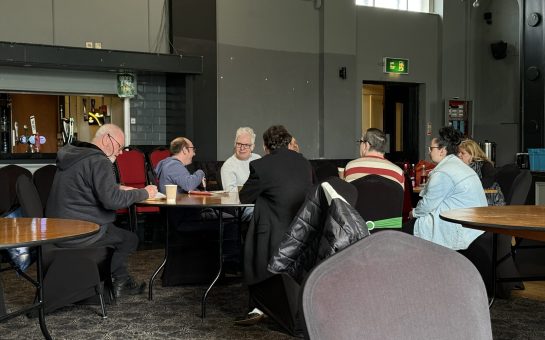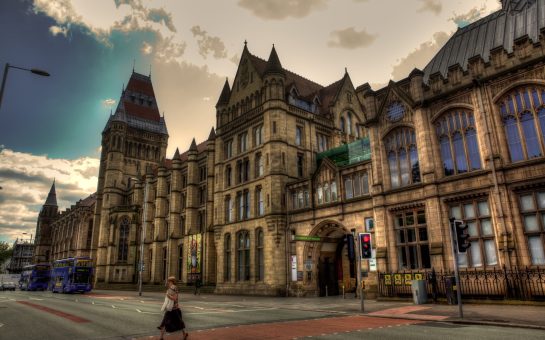Andy Burnham has said that a week after the first peak in coronavirus cases was declared nationally, Greater Manchester is passing through its own peak.
Manchester’s figures have begun to reflect that the peak may have come and gone, as numbers of confirmed cases, ICU beds occupied, and hospital admissions are on downwards trajectories for the second week running.
942 cases were confirmed last week, compared with 827 this week, and the number of patients in ICU care stood at 190 last week, compared with 136 this week.
Addressing these encouraging statistics, the mayor said: “It seems we are passing through the peak and beyond.”
However, one area that continues to produce troubling numbers is the frequency of outbreaks in care homes. There have now been 287 clusters reported from care homes, up by 31 from last week, which the mayor describes as a “real concern.”
Mayor Burnham congratulated Prime Minister Boris Johnson on the birth of his son, but did not refrain from criticising his government’s faltering financial aid to the Greater Manchester area.
Nine out of ten councils received less relief money this week than in the initial aid packages, while financial stresses only worsen.
One of these stresses is the ongoing effort to provide housing to the homeless.
So far, 1,310 homeless people have been helped into housing during the pandemic, but the lockdown has produced an estimated 170 additional homeless people, as tenuous housing situations and relationships have broken down, and prisoners have been released into a strange new world.
The government aid packages make no consideration for the newly homeless since the outbreak of the virus in this country, and worryingly, the GMCA believe that deprivation weighting has been disregarded in the most recent aid package.
In other words, the government is no longer taking into consideration the higher rate of poverty in the Greater Manchester area.
Funding from the government to ensure that Metrolink tram services continue to operate is expected later today.
Mayor Burnham does not expect that the package will be enough to cover the costs of the service, but did not say what he thought would happen as a result.
‘NO STRATEGY’
Meanwhile, testing and supplies of personal protective equipment (PPE) continue to pose problems to the GMCA.
A shipment of PPE is expected tomorrow, but the mayor says that the government’s targets for testing are not in step with the practical considerations involved in administering the tests.
He said: “Government has been chasing the target without thinking through the strategy.”
A lack of coordination with local governments has caused problems this week, as the British military opened a testing facility in Rochdale, apparently unaware that the GMCA had already opened a facility there.
He says it should be a top priority for the government to establish clearer and more robust strategies for testing and contact tracing, but the GMCA is not getting sufficient local support for testing, or PPE.
Councillor Elise Wilson has taken over the economy portfolio, and will oversee the economic recovery of Greater Manchester as the Combined Authority begins to think consider lifting some lockdown measures.
As a local business owner, she is “crucially aware” of the scale of this challenge, and although she recognises the hardship endured by the many people who have lost income this year due to the virus, watching locals adapt to the lockdown has been encouraging.
She is sure that this spirit of adaptation will see Manchester through the period of recovery, specifically lauding Sacha Lord’s “United We Stream” project for developing new ways of succeeding under difficult circumstances.
Councillor Sean Fielding, who has been put in charge of digital issues, describes how pressing the need to stimulate the digital economy has become, as certain jobs may disappear as a result of the pandemic, while others may move into cyberspace.
He hopes that local plans to provide broadband to 45% of Manchester by 2025 will be moved forward to 2022, and will be expanded in scope to include more residents.
In light of the damage done during this period to young people’s education, he has also laid out a new digital technology fund, which will provide 500 disadvantaged young people with free laptops.
For the second week in a row, Mayor Burnham said that the use of masks by the general public should speed up the recovery of the economy, for example, by allowing as many as four times the number of people to use public transport at once.
I raise this because I’m genuinely interested in people’s views. Would masks help build people’s confidence to use transport? Or is that a step too far & better to rely on social distancing? No decisions have been made & I am keen to hear what you think. https://t.co/kiZWVhj6SH
— Andy Burnham (@AndyBurnhamGM) April 29, 2020
Since he does not expect the government’s aid package to cover all of Metrolink’s costs, he suspects that enhancing capacity on Metrolink services by enforcing a mask policy may be necessary to keep services running.
He has not formulated official policy in this area for Manchester residents, and would like to know what the public think: would local people feel more reassured about their safety if there were clearer local guidelines concerning PPE and social distancing?
Mayor Burnham concluded his address by insisting that when he says we need to “build back better”, he is serious, and cautiously hopeful about the changes that may be brought about.
This pandemic could prompt crucial reforms to social care and healthcare, and policies to house the homeless could outlast the pressures of the pandemic, but only if the national Conservative government stop chipping away at local council funding.
Resources continue to be available online for those seeking official guidelines for businesses, people hoping to volunteer and do their part to help locally, and the latest official medical advice.



